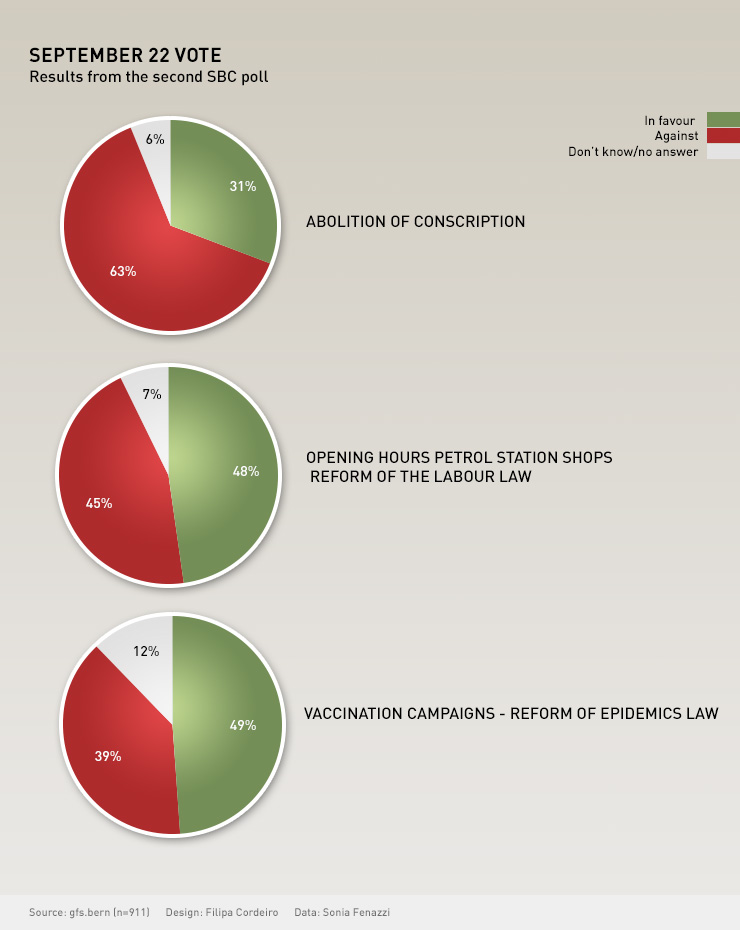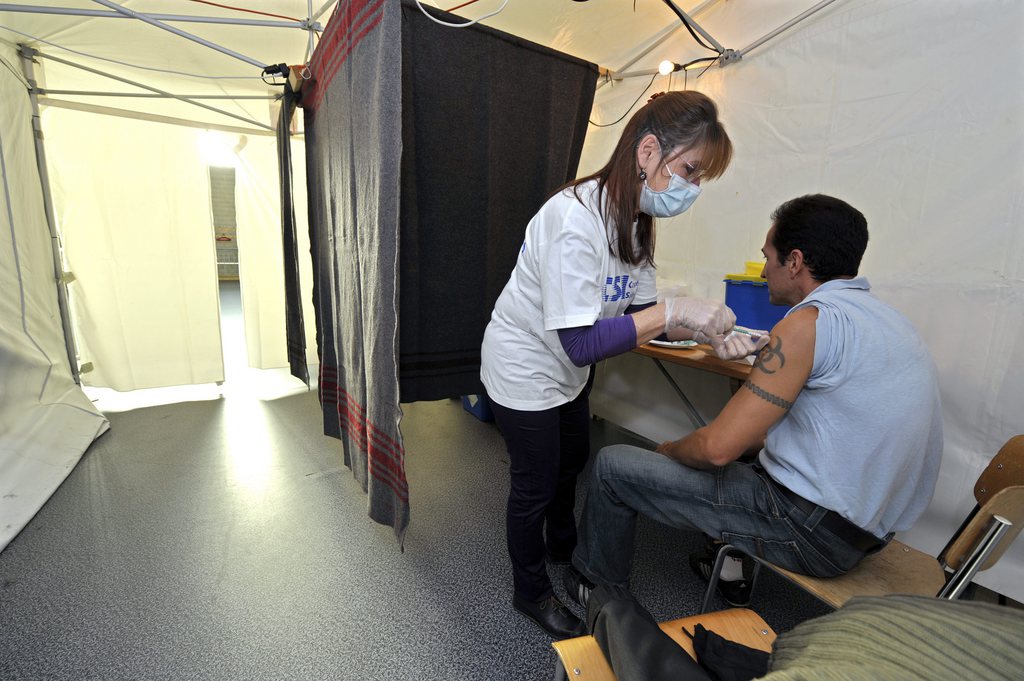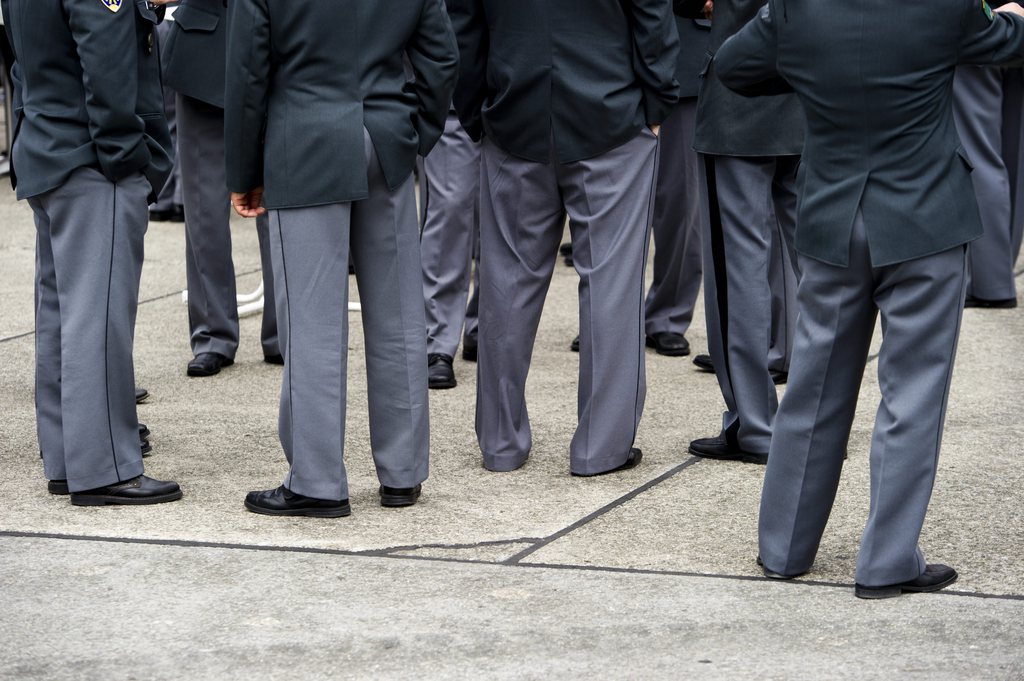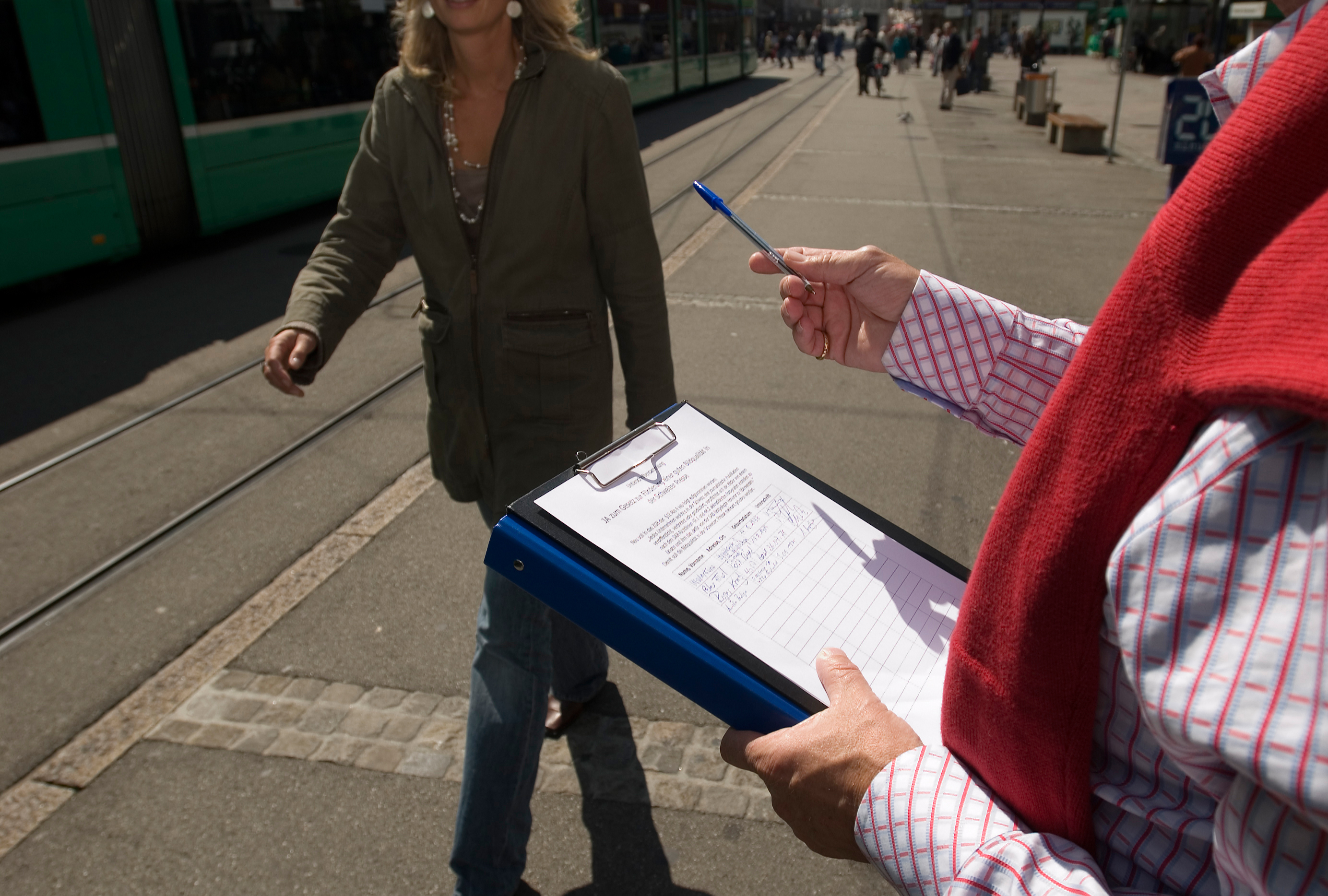Vote outcomes remain uncertain, except for army

Close results are expected later this month when voters decide on petrol station shops and vaccination campaigns. A proposal to scrap conscription however is heading for defeat according to the latest opinion poll.
Political scientist Claude Longchamp says one of the main findings of the survey by his GfS Bern research and polling institute is a comparatively low-key campaign ahead of the September 22 ballots.
Commissioned by the Swiss Broadcasting Corporation, the poll was published on Wednesday.
“There is hardly any public debate or it has had no impact on citizens,” he says.
The number of undecided people remained virtually unchanged over the past four weeks the final poll found. (For details see graphic.)
This is also due to an overlap with another political debate, an initiative to cap salaries at a 1:12 ratio within every company, Longchamp adds.
The highly controversial proposal is not on the ballot sheet on September 22, but only in November.
Nevertheless turnout in ten days is expected to reach an average level of about 45 per cent.

More
Details of final opinion poll
Unpredictable
The biggest challenge for the pollsters is a plan by parliament granting the federal authorities a greater say in vaccination campaigns.
“Everything is still possible,” Longchamp said.
A broad coalition, including critics of globalisation, argues that the reform amounts to introducing compulsory vaccinations and panders to the interests of the pharmaceutical industry.
“It is not an issue that pits the left against the right, but those who have confidence in the authorities and those who don’t,” he said.
The pollsters interviewed 1,406 Swiss citizens across the country for the second and final survey ahead of the September 22 vote.
Swiss expatriates are not included in the poll.
The telephone interviews took place between August 30 and September 7.
The margin of error is 2.7%.
The survey was commissioned by the Swiss Broadcasting Corporation, swissinfo’s parent company, and carried out by the leading GfS Bern research and polling institute.
Night-time shopping
A tight result is also expected over a decision to liberalise night-time shopping at certain petrol stations.
Supporters of the reform are people with comparatively high incomes in urban regions, while trade unions, as well as citizens in the French-speaking part of the country, oppose the liberalisation.
Two weeks ahead of polling day, supporters held only a three per cent lead over opponents. They fear a yes vote could open the floodgates for the gradual introduction of a 24-hour society and a deterioration of working conditions for personnel in the retail sector.
At the moment, just over 20 shops at petrol stations on motorways and busy roads in urban areas are allowed to stay open around the clock, but they cannot offer the full range of products overnight.
Conscription
An initiative by the pacifist Switzerland without an Army group is set to fail, according to the pollsters.
Supporters of conscription are more than 30 percentage points ahead. Opponents hope to mobilise young voters in the run-up to polling day.
However, political scientist Lukas Golder of GfS Bern points to a relatively bland campaign by the pacifists.
It is the third vote in more than 20 years on Switzerland’s armed forces, which continue to enjoy widespread popular support as a factor of cohesion in society.
Critics, however, argue conscription for able-bodied male citizens should be scrapped and a professional army of volunteers, replacing the current militia system with its roughly 185,000 members, would be better suited and more efficient to respond to the needs of a modern society.
Voters decide on three separate issues:
An initiative calling for the abolition of conscription and the creation of a professional army.
A plan by parliament to extend opening hours of certain shops on motorways and main traffic roads, doing away with restrictions in the labour law.
A proposal approved by parliament to give the federal authorities a greater say on vaccination campaigns.
It is the third set of nationwide ballots this year.
At the same time, elections and votes on a variety of issues are taking place at cantonal and local level.

In compliance with the JTI standards
More: SWI swissinfo.ch certified by the Journalism Trust Initiative















You can find an overview of ongoing debates with our journalists here . Please join us!
If you want to start a conversation about a topic raised in this article or want to report factual errors, email us at english@swissinfo.ch.